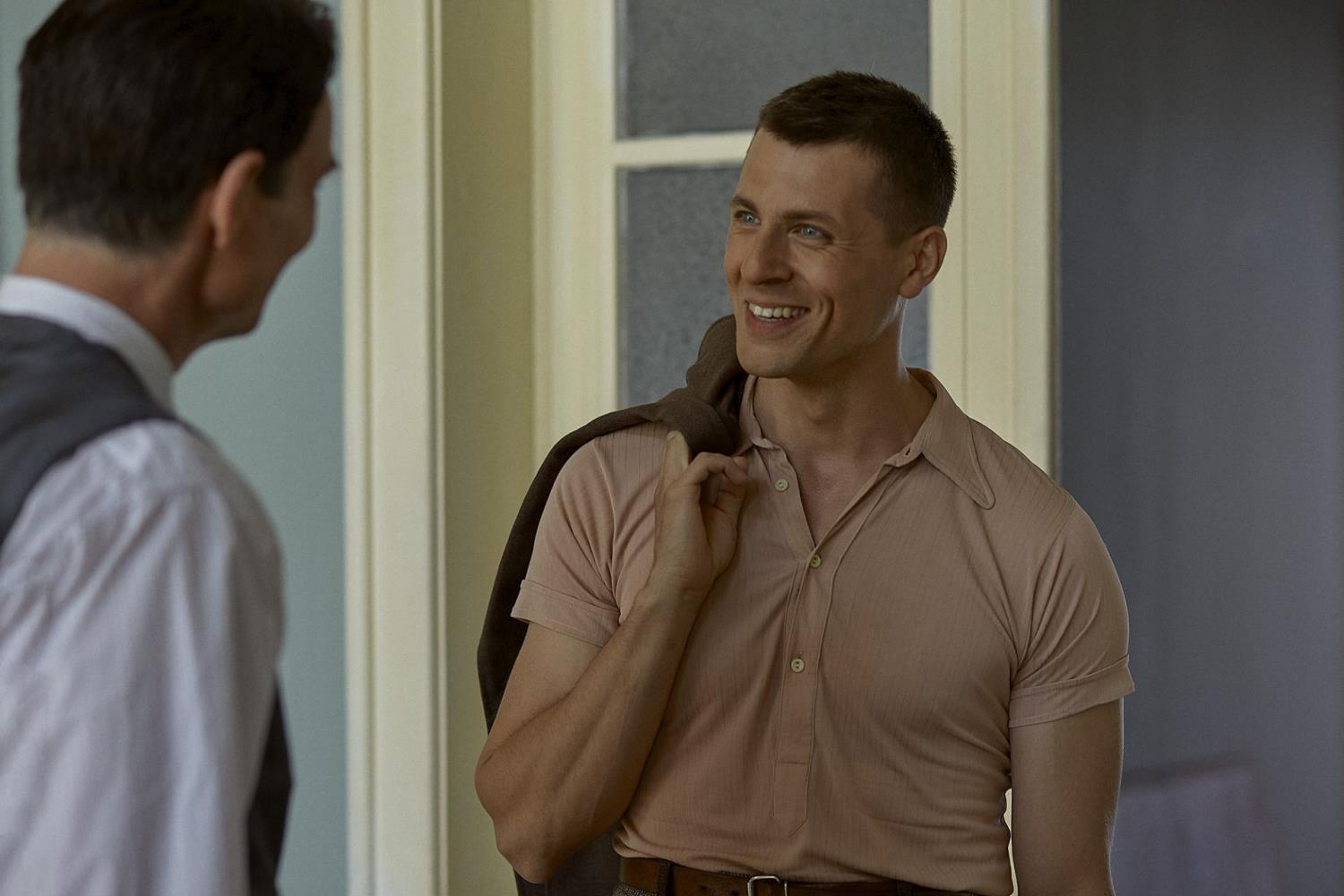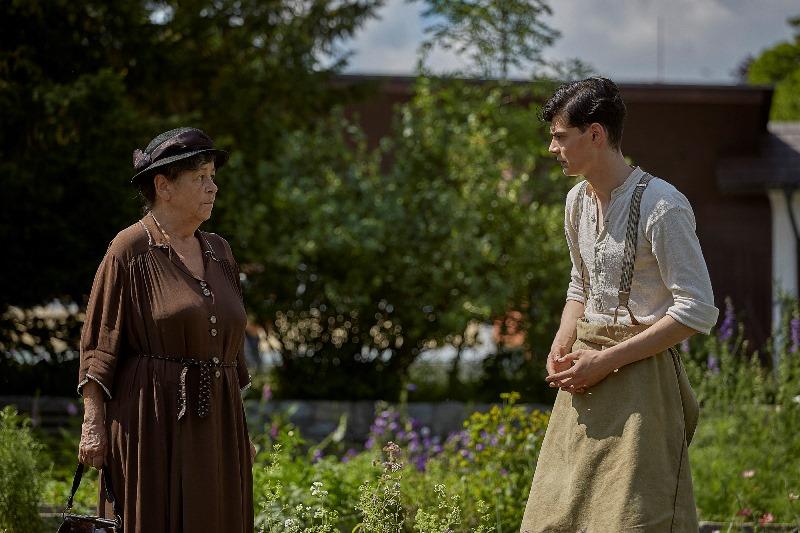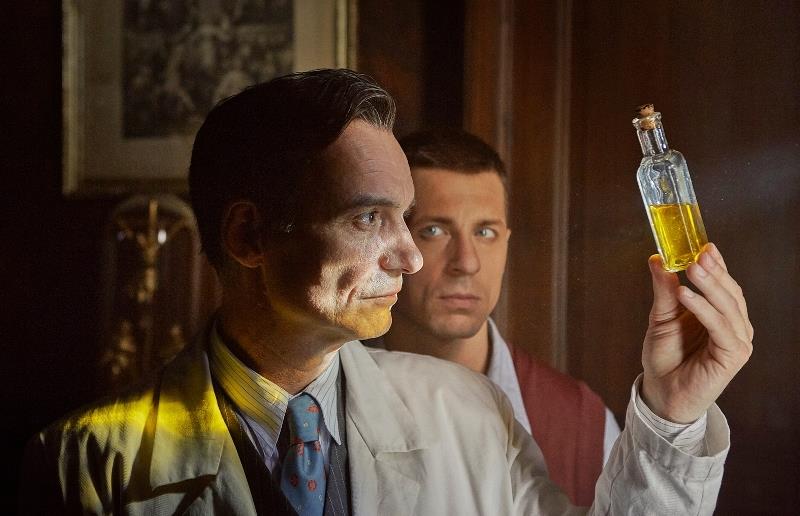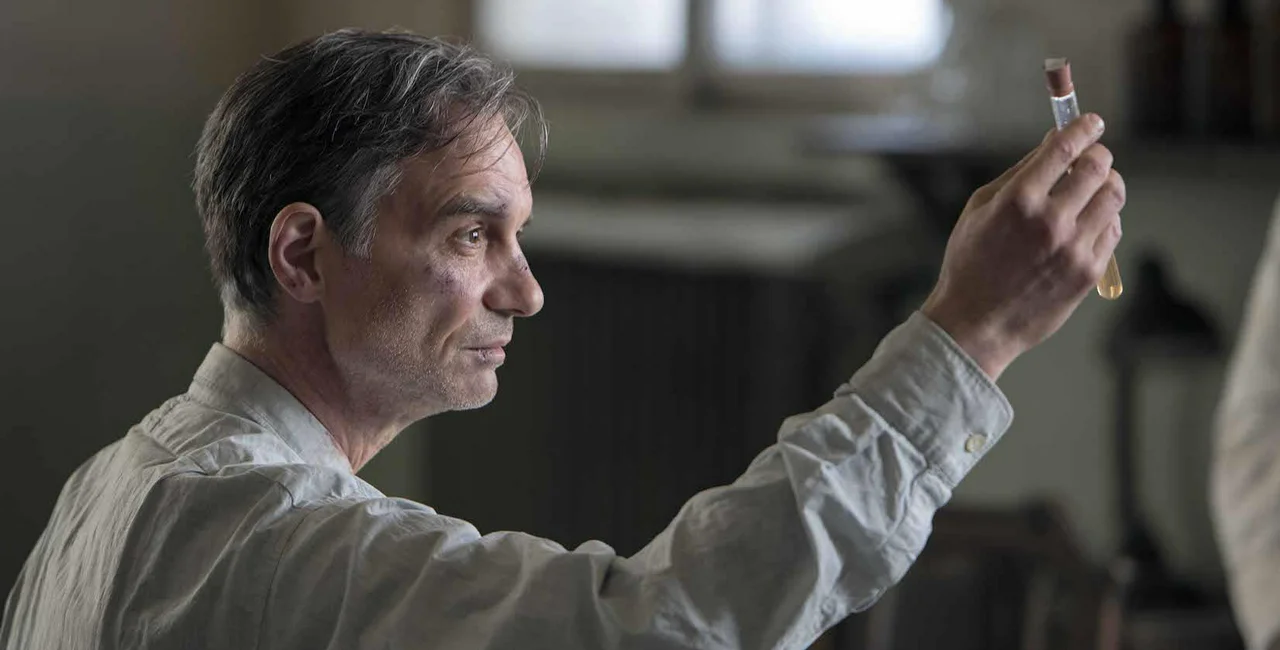One of the more colorful but obscure figures in 20th century Czechoslovak history is Jan Mikolášek, a self-proclaimed herbal expert who would look at bottles of urine and then prescribe herbal tea to cure all manner of serious liver, kidney and intestinal diseases.
Mikolášek claims to have treated over 5 million people is his career, many who lined up to wait for hours outside his rural house while others sent filled glass bottles in the mail.
His life, seen in the late 1950s and in flashbacks, is the subject of Polish director Agnieszka Holland’s latest Czech-language film Charlatan (Šarlatán).
Mikolášek is played as an adult by veteran Czech actor Ivan Trojan, while Trojan’s real-life son Josef Trojan plays the role in extensive flashbacks. Both Trojans both give compelling performances, with Ivan perhaps at his career best. Holland creates dramatic tension, slowly dropping in scenes from the past to explain the motivations, while not telegraphing the direction of the story.
Holland’s work is hit and miss, and Charlatan falls in the upper half. It succeeds on many levels, but has some fundamental issues.
In 2017 Holland made the rather sprawling and confusing Czech-Polish crime film Spoor. Her 2019 thriller Mr Jones, looking at the a journalist uncovering famine in Ukraine, on the other hand earned almost universal praise.
She is best-known for 1990’s Europa Europa, which won the Golden Globe Award for Best Foreign Language Film and was nominated for the Academy Award for Best Adapted Screenplay. She also has extensive TV credits including 2013’s Burning Bush for HBO.

Charlatan film has some lofty intentions to show an imperfect, conflicted hero who runs afoul of a corrupt totalitarian system. But that is also the film’s biggest problem.
The story never looks at the elephant in the room — whether or not there was any value at all to his intense urine gazing and homemade herbal potions. Instead he is shown curing his sister’s gangrene with a salve of ground leaves, predicting the exact day someone will die just by looking at them, and going head-to-head with a German medical doctor and making more accurate diagnoses.
Religion is downplayed, but at one point Mikolášek tells an interrogator that faith is half the cure. The old woman (Jaroslava Pokorná) who taught Mikolášek stressed the importance of daily prayer for the healer, and makes some mention of divine gifts and performing miracles.
The people in the film who question whether Mikolášek is doing more harm than good with his potions are admittedly black uniformed Nazi Gestapo agents and, later, hard-line pro-Stalin communists. This does make Mikolášek seem to be the victim of intolerance, but it still asks the audience to set aside medical science and accept faith-based folk medicine as something valid.

Much of the film’s focus is shifted instead to Mikolášek’s romantic relationship with his assistant, František (Slovak actor Juraj Loj), who is equally unqualified in medicine. The relationship causes Mikolášek some internal turmoil, symbolized in the film by him kneeling on sharp rocks to pray after their first romantic encounter. (Male romantic relationships were illegal in Czechoslovakia at the time.)
The subject of Mikolášek’s patients also comes up. The film starts with the 1957 death of Czechoslovak communist leader Antonín Zápotocký, whom he treated. This leaves Mikolášek without any friends in high places to protect him. Later it is revealed he also treated Nazi leader Martin Borman. This seems to be an attempt to depict Mikolášek as a flawed hero who took his all-patients-are-equal idea perhaps a bridge too far.
The latter part of the film is framed around a court case, which, while shown as a communist-era sham trail, is also frustrating underdeveloped leaving far more questions than answers.

The cinematography and the production design are big pluses for the film. In the scenes set in the 1950s, everything is drab and unsaturated. Blues and blacks predominate the cold scheme, and urine adds the only warm color. A claustrophobic feel is created by often having some blurred object in the foreground, blocking a proper view. Sharp shadows create an expressionist look as Mikolášek gets deeper into trouble.
Scenes between the wars are more vibrant and colorful, with greens and yellows and lots of sunshine, and unobstructed vistas.
Dramatically, Marek Epstein’s script on its own is cleverly constructed, if one sets aside the questions over the validity of folk medicine. His other credits include 2011’s Signal, 2012’s In the Shadow (Ve stínu) and 2018’s Intimate Enemy (Důvěrný nepřítel).
The audience in the end is left to judge the main characters, balancing the good they did against the bad, but that only works of the entire urine gazing project did anybody any good at all.
The film made its debut at the Berlin Film Festival in February, but then saw its release delayed due to the coronavirus pandemic. Charlatan and The Painted Bird are under consideration for a nomination for the European Film Award, and the short list of nominees will be announced in November.
Charlatan (Šarlatán)
Directed by Agnieszka Holland
With Ivan Trojan, Josef Trojan, Juraj Loj, Jaroslava Pokorná, Martin Myšička, Miroslav Hanuš, Jiří Černý, Tomáš Jeřábek, Jan Budař, Martin Sitta, Jan Vlasák, Daniela Voráčková, František Trojan, Jana Oľhová, Kamil Švejda, Václav Kopta
In Czech, with English subtitles as some theaters
Screenings at the end of August with English subtitles are at Světozor, Přítomnost, Edison, Kino Pilotů and Dlabačov. Some (but not all) screenings at Cinema City Slovanský dům also have English subtitles. Check on the websites of the individual theaters for further information.












 Reading time: 4 minutes
Reading time: 4 minutes 


































